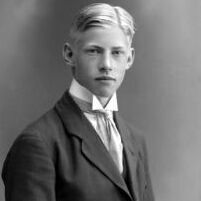
Note: While authors are asked to place warnings on their stories for some moderated content, everyone has different thresholds, and it is your responsibility as a reader to avoid stories or stop reading if something bothers you.
The Egg Stone - Prologue. Prologue
The Egg Stone
In the time before and in the time after does the following take place on a planet with two suns and three moons. For there are many tales that follow this story. The time is one of change as the inhabitants are moving from the nomadic to an agrarian lifestyle, where trade is conducted between remote villages and the first use of metals has started. Technology has advanced to the levels to support a merchant class coexisting with the farmers, hunter/gatherers and the religious order. Their culture has developed rules of conduct based on the Chronicles and the Protocols. They have a written language which was a gift of the Chronicles.
Names
· La’gan, son of the chief hunter, sixteen summers old.
· Tomolo, son of a farmer, sixteen summers old and a nascent farmer himself.
· Marekh, son of the brewer, sixteen summers old.
· Head priest and priests, religious personnel.
· Dhani, mate of La’gan, fifteen summers old.
· Volan, son of the smithy, seventeen summers old.
· Taraq, youngest son of the village trader, fourteen summers old.
· Physic, village physician.
· Carig, oldest son of the village trader, eighteen summers old.
· Tan’yla betrothed to Carig, sixteen summers old, daughter of the village baker.
· Don’al, former head priest now deceased.
· Grandfather, leader of the people of the lake.
· Ren’olo, granddaughter to Grandfather, mate of Tomolo.
· Fonali, village trader, father to Taraq and Carig.
· People of the lake, a village to the north.
· People of the land and woods, village where this story takes place.
· Saraq, name of the current head priest.
Glossary
· Fali, wooden penis shaped pole used in summary executions that take place on the platform.
· fali, penis.
· Platform, located in the public square, it is where all punishments are administered.
· Kunna, anus.
· Priest stones, shaped stones of nearly identical weights, used on the platform when capital punishments are administered. Used to set the depth of the Fali in the condemned’s Kunna.
· Gaol, jail.
· Chronicles/Protocols, basis of religion and laws.
· Seed, sperm.
· Eggs, testicles.
· Narg Oil, oil infused with a numbing agent derived from a plant similar to the coca plant.
· Anointing oil, oil infused with herbs that stimulate the skin, used on the fali ensures an erection.
· Herka, foreskin.
· Stygel, a wooden rod the diameter of a pencil with a cupped end. Used in forced circumcisions.
· Bata line, a marked distance in front of the platform, it is from here that stones are thrown.
· Bata board, a wooden board placed behind the condemned’s eggs.
· Dbijb, covering worn by male children up until the time they reach adult status. Much like a nightshirt with a hood.
· Shared lips, kissing.
· Mother of a dog, son of a bitch.
· Whet stone, used to sharpen metal knives.
· Bred, bread.
· Mokans, shoes.
· Jerkin, undergarment.
· Hard shell, turtles.
· Water swimmers, otters.
· Ber, beer.
· Honey mead, alcoholic beverage made from honey and fruits.
Units of measurements
· Summers, one year or twelve luni.
· Luni, one month, birth luni is the month of birth.
· Sun, one day.
· One hand and a half wide equals six inches.
· Two hands wide equal eight inches.
· Fingers, used to estimate inches
-
 10
10
-
 1
1
Note: While authors are asked to place warnings on their stories for some moderated content, everyone has different thresholds, and it is your responsibility as a reader to avoid stories or stop reading if something bothers you.
Recommended Comments
Chapter Comments
-
Newsletter
Sign UpSign Up and get an occasional Newsletter. Fill out your profile with favorite genres and say yes to genre news to get the monthly update for your favorite genres.



